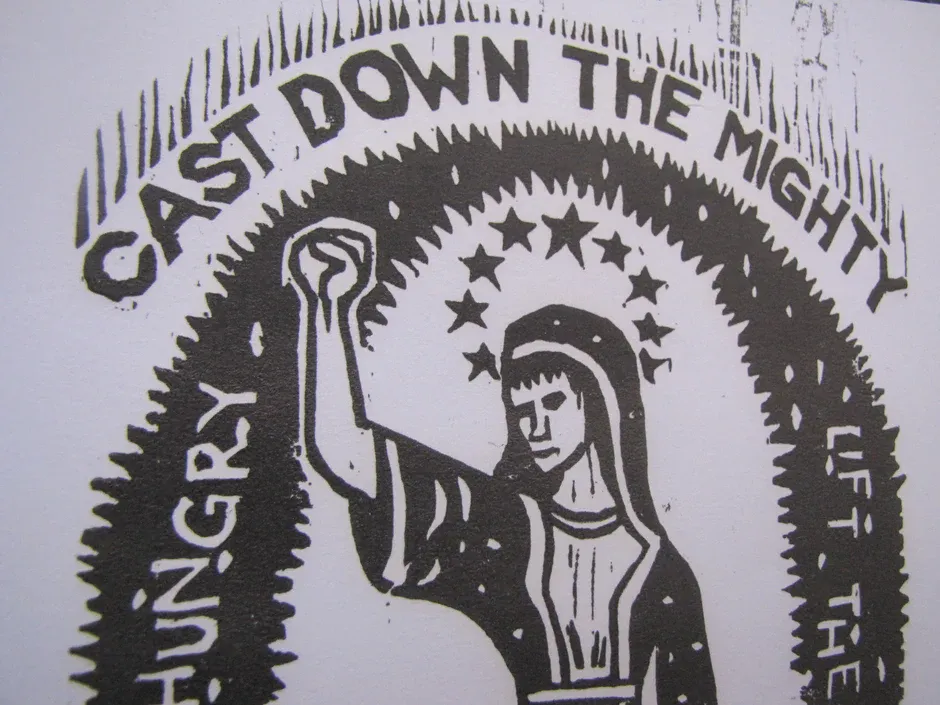Shorter one today! Who has time to read 1000-word essays in December?
I love the audacity of Advent, the Christian liturgical season of (1) waiting for Christmas, (2) retelling the Nativity narratives, (3) DARKNESS, and (4) APOCALYPSE. It’s a lot. And it is also always exactly what I need by December, when the world’s soul feels sick and gasping for both sequined frivolity and a COMPREHENSIVE OVERHAUL.
I could write forever about Advent, but today instead I offer an invitation. This week, I’m memorizing the Magnificat, Mary’s hymn in the gospel of Luke. There are plenty of manic moments in December when I need a mantra to recenter my mind. Why not the badass prophetic hymn attributed to the teenage mother of Jesus? A text that Dietrich Bonhoeffer—a pastor and theologian executed by the Nazis—called “the most passionate, the wildest, one might even say the most revolutionary hymn ever sung”? Want to join me?
Most translations of the Magnificat are, ironically, heavily patriarchal, so I did a fair amount of digging to find one that emphasizes God’s ineffable divinity, not masculinity. It’s one of multiple Magnificat translations from rockstar womanist theologian Wil Gafney, and it’s a poetic barnburner.
My soul magnifies the Holy One,
and my spirit rejoices in God my Savior,
for God has looked with favor on the lowliness of God’s own servant.
Surely, from now on all generations will call me blessed;
for the Mighty One has done great things for me,
and holy is God’s name.
God’s loving-kindness is for those who fear God
from generation to generation.
God has shown the strength of God’s own arm;
God has scattered the arrogant in the intent of their hearts.
God has brought down the powerful from their thrones,
and lifted up the lowly;
God has filled the hungry with good things,
and sent the rich away empty.
God has helped God’s own child, Israel,
a memorial to God’s mercy,
just as God said to our ancestors,
to Abraham and to his descendants forever.
Luke 1:46 - 55, tr Wil Gafney
(One tiny note: in another version, Gafney translates the last line as "Abraham through Hagar and Sarah and Keturah forever,” which is unwieldy but timely. Not only does it remind us that “Abraham’s” descendants are also descended from their mothers; it also underlines that all of Abraham’s descendants—Jewish and non-Jewish alike—live under the promise of God’s protection. YES.)
I’m going to spend this Advent month—when, as my pastor said this weekend, “all that we see and all that we are complicit in seem incongruous with all that we want for the world”—thinking and writing about Mary and the Magnificat. Y’all come!
(Would you like a printable version that can easily be trimmed down and folded? See below! I've printed a few for the car and various pockets—like chapstick!—to pull out while waiting in line or in traffic. My favorite memorizing method, which my family finds insane, is to work in chunks from the end to the beginning: start with the last two lines, then move backward two lines at a time. Then I’m always moving toward, instead of away from, the part I know best. Any other tips?)
Who's in for memorizing and/or meditating on the Magnificat this month?
xoxo

Member discussion: